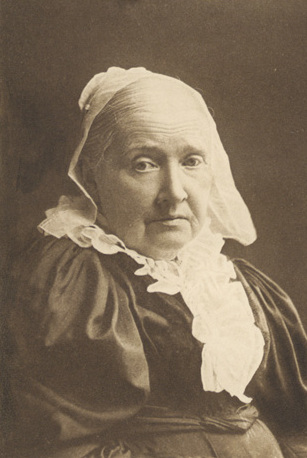Content deleted Content added
Line 4: ==Biography== Born '''Julia Ward''' in [[New York City]], she was the fourth child of banker [[Samuel Ward (banker)|Samuel Ward]] and occasional poet Julia Rush Cutler. Among her siblings was [[Samuel Cutler Ward]]. Her father was a well-to-do banker. Her mother, granddaughter of [[William Greene (Rhode Island governor)|William Greene]] (August 16, 1731 – November 30, 1809), [[List of Governors of Rhode Island|Governor of Rhode Island]] and his wife Catharine Ray, died when Julia was five after having borne seven children by the age of 27.
In 1843, she married [[Samuel Gridley Howe]] (1801–1876), a physician and reformer who founded the [[Perkins School for the Blind]] in [[Boston, Massachusetts]].<ref>Richards, Laura E., and Maud Howe Elliott. ''Julia Ward Howe, 1819–1910'', {{nowrap|vol. I}}. Boston: Houghton Mifflin, 1916.</ref> They announced their engagement quite suddenly on February 21; though Howe had courted Julia for a time, he had more recently shown an interest in her sister Louisa.<ref>Williams, Gary. ''Hungry Heart: The Literary Emergence of Julia Ward Howe''. Amherst: [[University of Massachusetts Press]], 1999: 33. ISBN 1-55849-157-0</ref> Her book, ''Passion-Flowers'', was published in December 1853. The book collected intensely personal poems and was written without the awareness of her husband, who was then editing the Free Soil newspaper ''The Commonwealth''.<ref>Williams, Gary. ''Hungry Heart: The Literary Emergence of Julia Ward Howe''. Amherst: [[University of Massachusetts Press]], 1999: 134–135. ISBN 1-55849-157-0</ref> | |||
 Article Images
Article Images